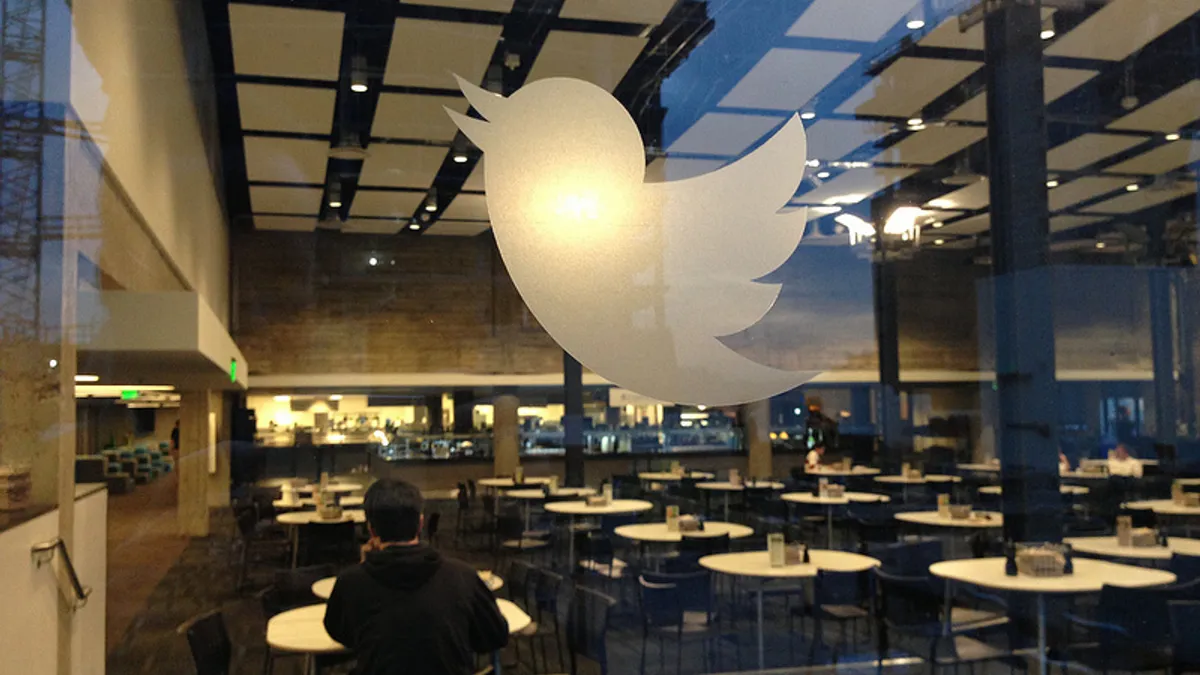Dive Brief:
- Twitter, Facebook and other high-profile employers have announced restrictions to employee — and even job candidate — movement in response to COVID-19, caused by a novel member of the coronavirus family.
- Twitter for example, announced March 1 it had suspended non-critical business travel and events. The following day it updated its statement, "strongly encouraging all employees globally to work from home if they're able" in an effort to lower the probability of spread. "Working from home will be mandatory for employees based in our Hong Kong, Japan, and South Korea offices due in part to government restrictions," it added.
- Facebook has taken action, too, temporarily ending social visits to its offices and allowing only business visitors, a spokesperson told HR Dive March 2. Additionally, it is conducting candidate interviews via video conference where possible. Among other moves, Salesforce has limited travel and both Microsoft and Google have shifted upcoming conferences to virtual events.
Dive Insight:
Just days ago, the Centers for Disease Control urged employers across the country to devise telework plans to cope with the disease's emergence. Now, some are putting those plans into action, especially those in areas with confirmed COVID-19 cases.
As a first step, however, experts previously told HR Dive that employers can take steps similar to those they would take before flu season. Employees can be encouraged to wash their hands, avoid touching their faces and refrain from sharing work tools. Additionally, HR can make clear that employees should stay home when they feel sick and explain any telework options.
But as the number of confirmed cases rises, more employers may move to implement plans similar to Twitter's that halt travel and keep employees at home. HR can play a key role in implementing such plans, working with leadership, IT and others to address issues such as employee engagement and productivity, information security and business continuity.












